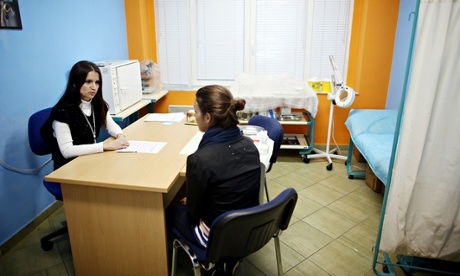
The world wide web is a key player on the UK sexual health scene. The National Chlamydia Screening Programme, which launched in 2003, improved access to sexually transmitted infection tests online; a plethora of accurate information on sexual wellbeing is now accessible from your smartphone; and you can even order made-to-fit condoms from speciality websites. But grave concerns exist for the increasing number of people accessing their STI treatment online.
I, along with other sexual health experts, understand the feelings that accompany a positive STI diagnosis. They can range from a sense of mild inconvenience to downright terror, and are combined with the need to get the problem sorted out as soon as possible.
This is where internet services have come in to their own. After filling in an online form, medication can be ordered and delivered to your door within 48 hours. Compared with a potentially embarrassing and time-consuming trip to your doctor, it’s clear to see why this option is proving popular. So why does Public Health England give two hoots? Surely getting treated is the priority and increasing treatment access is making that easier?
A recent investigation undertaken by GP and journalist Dr Faye Kirkland has revealed that online services are not offering the correct treatments for STIs, namely gonorrhoea. Kirkland says: “Gonorrhoea is the second most common bacterial STI in the UK and requires both an injection and tablets to treat it effectively, and this combination can only be accessed at a sexual health clinic or GP.”
Online services are prescribing only tablets for the infection which may not fully treat it and can result in it being passed on to others. The use of this sub-optimal treatment is also contributing to gonorrhoea antibiotic resistance and the frightening prospect of no effective treatment for an infection that affects around 30,000 people in the UK every year.
What’s also important to understand is that managing STIs properly doesn’t just involve doling out medications. First off, you need to know exactly what infection(s) need treating by getting the right tests done and possibly by having a physical examination. The correct medications should then be safely prescribed for each individual, with respect to personal medical conditions and allergies.
Also, partners need to be considered. Some conditions require a ‘test of cure’ at a later date to ensure they have been effectively treated. And, without doubt, an opportunity should be given for confidential, non-judgmental discussion with a trained professional. The concern with online services is that this protective approach is being bypassed and decreased consumer awareness is leading to potentially severe consequences. “People won’t realise this,” says Dr Jan Clarke, president of the British Association for Sexual Health and HIV. “They will opt for the easy, rapid response but they don’t know what they’re missing.”
The consequences of this mismanagement are potentially far-reaching and Kirkland’s findings have spurred shadow public health minister, Luciana Berger, to question ministers about these issues. “The Care Quality Commission and Department of Health need an urgent review of the situation to protect population health,” says Berger. She adds: “Sexual health clinics are progressive, discreet services that should be used to ensure gonorrhoea is well managed.”
The case poses bigger questions. In 2013 the Department of Health Framework for Sexual Health Improvement in England allocated the responsibility of funding or “commissioning” STI services to local authorities. The framework stated its vision was to “increase rapid access to services in a range of settings, accessible at convenient times” and “to reduce stigma associated with poor sexual health” and it acknowledged that “gonorrhoea is becoming more difficult to treat, as it can quickly develop resistance to antibiotics”. The increasing number of people choosing to access online treatments suggests this “rapid, accessible access” is still not available to all, that stigma remains and that patients are not being given all the information they need to effectively manage their personal health.
This is all food for thought and highlights the need for government to be aware of existing public attitudes to sexual health and the developing response to the consequences of funding withdrawal. This case also poses broader questions about the lucrative phenomenon of online prescribing, an increasingly utilised option but one that is fraught with potential for error.
The investigation has prompted a number of online services, some fronted by celebrity campaigns, to amend their website advice accordingly. But potential for mismanagement remains and responsibility now lies with the relevant bodies to fill in these gaps in governance and supply sufficient guidance for the wider issue of online medical management. Only then can we continue the fight against antibiotic resistance and safeguard the health and wellbeing of our population. Watch this space.

